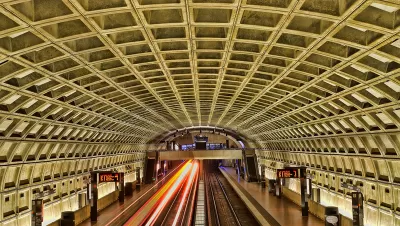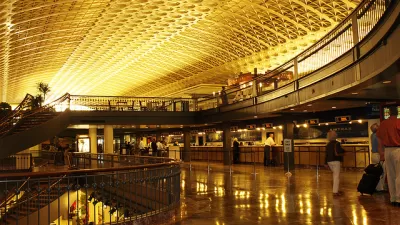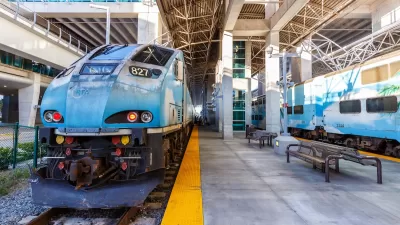The region's transit providers are gearing up to provide enhanced service, shorter headways, and reduced or free fares as more people return to public transportation.

Washington, D.C.'s regional transit agencies are working to resume and improve service as workers start returning to their pre-pandemic commutes. As reported by Luz Lazo, "[m]ost transit systems in the region are transitioning to normal operations after reducing service 16 months ago at the onset of the pandemic. Some are adjusting or restructuring routes, while others are adding amenities and cutting the cost of riding."
Ridership in the region "has started to bounce back, although it hasn’t returned to where it was pre-pandemic. Local bus systems are still 50 to 70 percent below previous levels, according to transit officials, while Maryland and Virginia commuter trains are largely empty — down by about 85 percent."
D.C. Metro "is rolling out service improvements for bus and rail users, as well as a reduction in fares this fall. Beginning in September, weekend rides on Metrorail will be a flat $2, a $1.50 transfer fee between rail and bus will be lifted and the price of a seven-day regional bus pass will drop by $3 to $12." The agency also plans to increase frequencies on their most popular train lines, expand operating hours, and restore or increase bus service on 46 routes.
Maryland's MARC trains and commuter buses will also bring back full service and allow cyclists to bring their bikes on trains in order to expand first-mile/last-mile options, while the popular downtown D.C. Circulator will be free "at least through Sept. 30."
The article details the changes planned by several other transit systems in the area as they gear up to resume full service, reducing or eliminating fares, and expanding frequency and service areas.
FULL STORY: Planning a return to the office? The D.C. area’s transit systems want to get you there.

Planetizen Federal Action Tracker
A weekly monitor of how Trump’s orders and actions are impacting planners and planning in America.

DARTSpace Platform Streamlines Dallas TOD Application Process
The Dallas transit agency hopes a shorter permitting timeline will boost transit-oriented development around rail stations.

Congressman Proposes Bill to Rename DC Metro “Trump Train”
The Make Autorail Great Again Act would withhold federal funding to the system until the Washington Metropolitan Area Transit Authority (WMATA), rebrands as the Washington Metropolitan Authority for Greater Access (WMAGA).

Supreme Court Ruling in Pipeline Case Guts Federal Environmental Law
The decision limits the scope of a federal law that mandates extensive environmental impact reviews of energy, infrastructure, and transportation projects.

Texas State Bills to Defund Dallas Transit Die
DART would have seen a 30% service cut, $230M annual losses had the bills survived.

Bikeshare for the Win: Team Pedals to London Cricket Match, Beats Rivals Stuck in Traffic
While their opponents sat in gridlock, England's national cricket team hopped Lime bikes, riding to a 3-0 victory.
Urban Design for Planners 1: Software Tools
This six-course series explores essential urban design concepts using open source software and equips planners with the tools they need to participate fully in the urban design process.
Planning for Universal Design
Learn the tools for implementing Universal Design in planning regulations.
Roanoke Valley-Alleghany Regional Commission
City of Mt Shasta
City of Camden Redevelopment Agency
City of Astoria
Transportation Research & Education Center (TREC) at Portland State University
US High Speed Rail Association
City of Camden Redevelopment Agency
Municipality of Princeton (NJ)





























